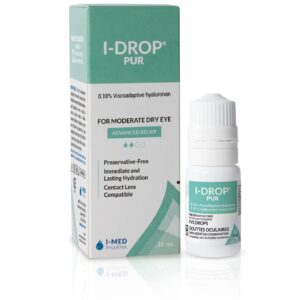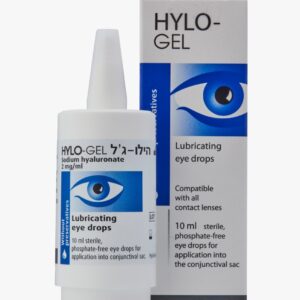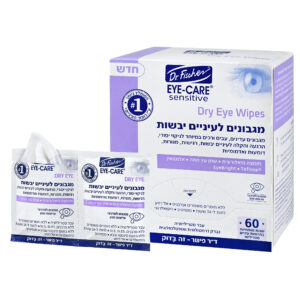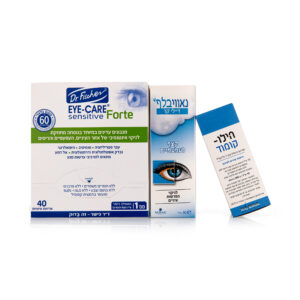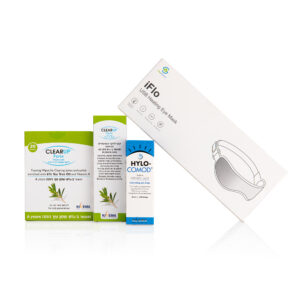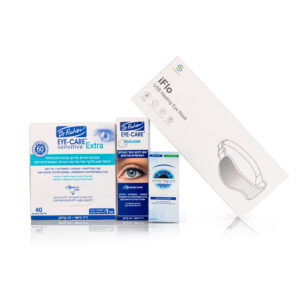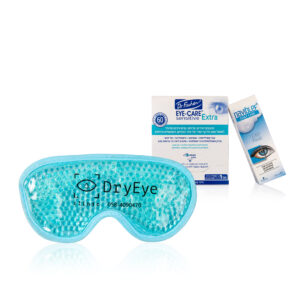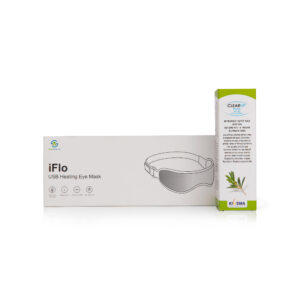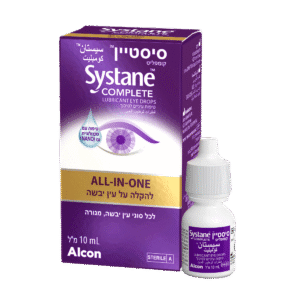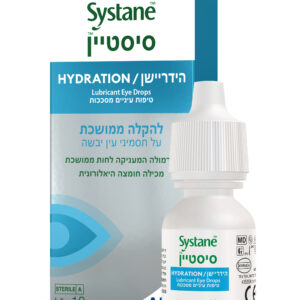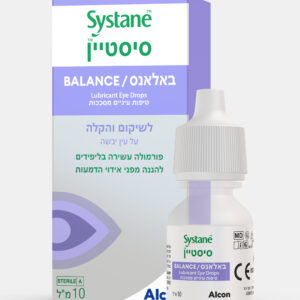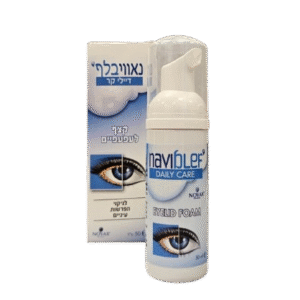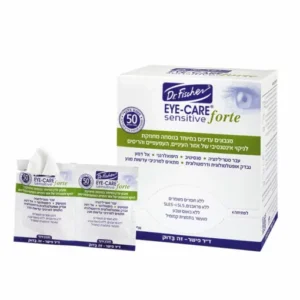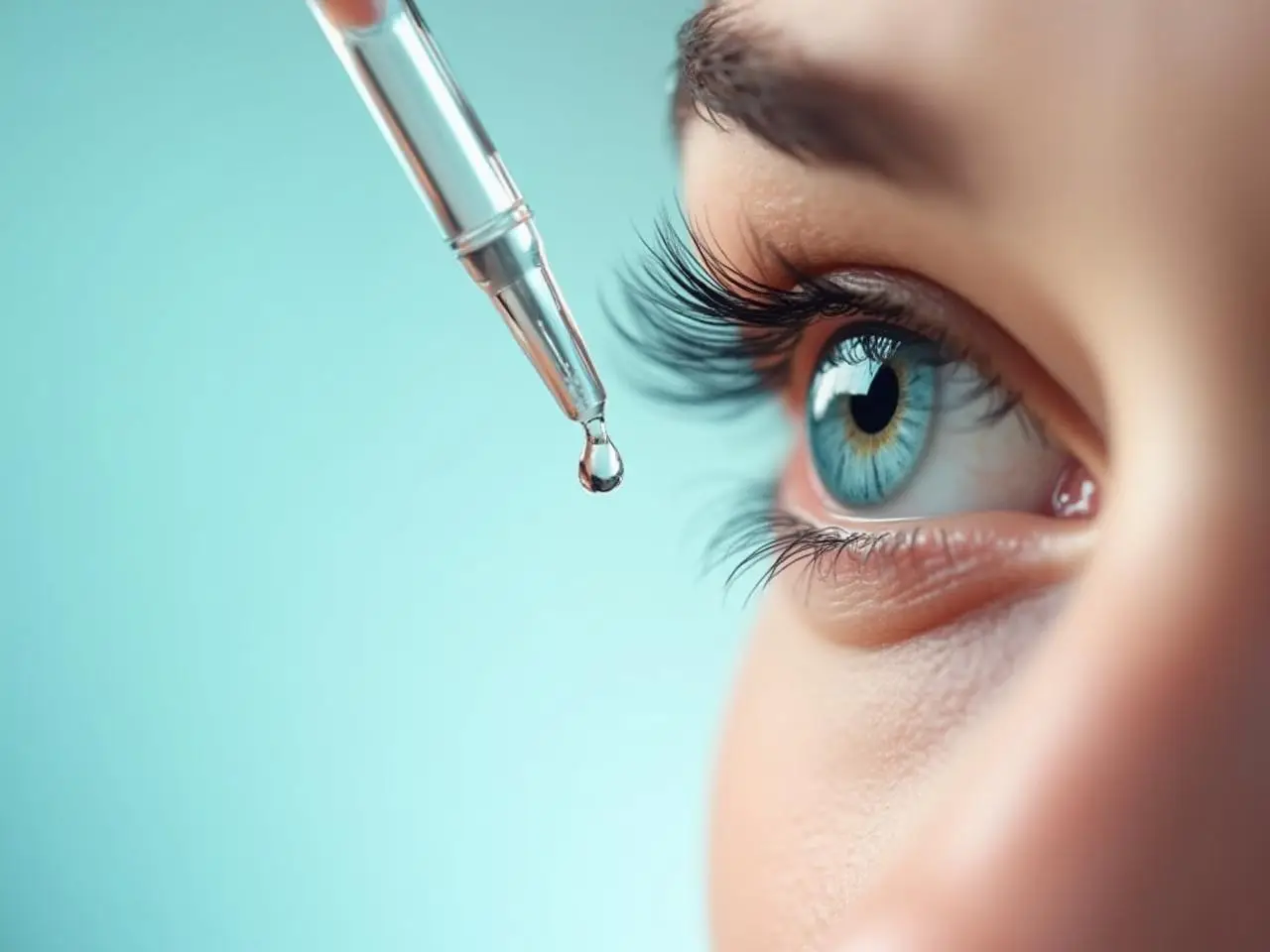
טיפות דמעות – מה זה ולמה משתמשים בהן?
טיפות דמעות הן תמיסות רפואיות או קוסמטיות שמטרתן להקל על
There is nothing more frustrating than looking for an urgent ophthalmologist and being stuck without an answer. When it comes to eye health, time is often of the essence. In Israel's bustling landscape, where life moves fast and health options abound, knowing how to quickly find the right eye care can make all the difference. Whether you are a resident or a visitor experiencing an eye emergency, understanding how to navigate the healthcare system to find an immediate eye doctor appointment is essential. This guide is intended to provide you with the essential information needed to make informed decisions regarding urgent eye care in Israel. From identifying symptoms that signal the need for immediate attention to navigating both public and private healthcare services, we strive to ensure you have the tools and knowledge at your disposal to act quickly and efficiently.
Eye emergencies can appear suddenly, and knowing which symptoms require immediate treatment is key to preventing further damage or vision loss. Immediate medical attention is required if you experience any of the following:
Recognizing these symptoms and understanding the urgency of getting medical attention are the first steps in preserving your vision. Immediate consultation with an ophthalmologist can mean the difference between a full recovery and long-term damage. In the following sections, we will guide you through the process of finding and accessing urgent eye services in Israel, and we will ensure that you are ready to act quickly in case of an eye emergency.
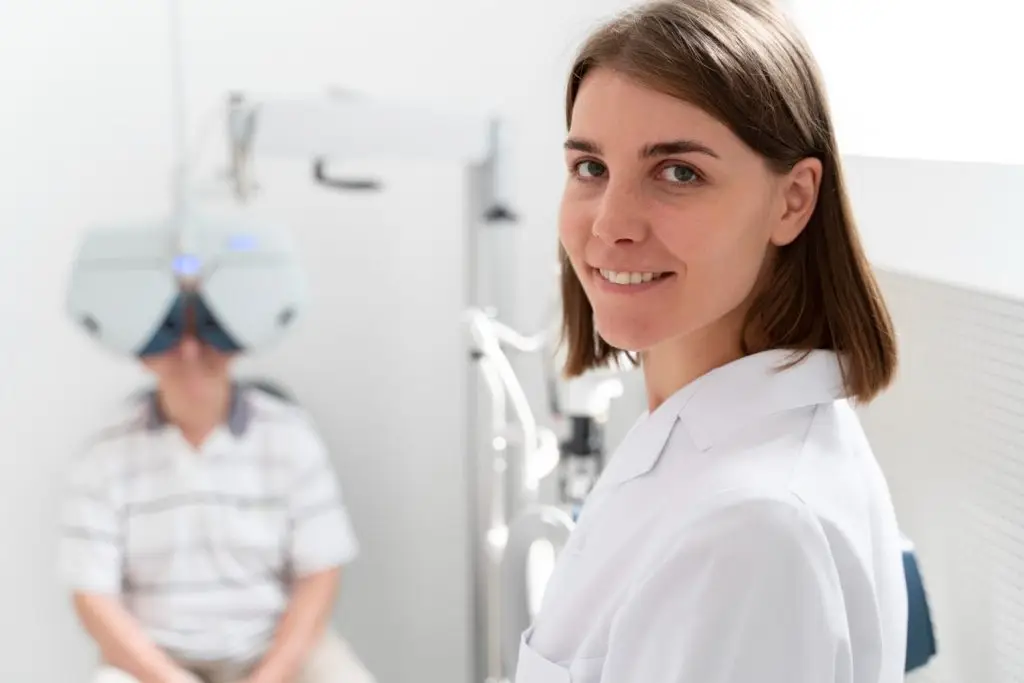
When faced with an eye emergency, taking immediate and appropriate action is essential to prevent lasting damage. Here's what you need to do:
First, assess the situation: quickly determine the severity of the situation. In case of chemical exposure, flush the eye with water for at least 15 minutes. For foreign objects, do not try to remove them yourself; Gentle blinking may help, but avoid rubbing the eye.
Seek professional help: If the situation is clearly an emergency, such as sudden vision loss or severe trauma, go to the nearest emergency room immediately. Hospitals in Israel are equipped to handle such emergencies, and immediate action is critical.
Contact your healthcare provider: If you are registered with a health insurance fund, contact their emergency call center for advice. They can guide you on whether to go to the emergency room or refer you to an ophthalmologist who can see you urgently.
Use emergency eye services: Some hospitals and clinics in Israel offer dedicated emergency eye care services. Know these locations in advance, so you know where to go if an emergency situation arises.
Avoid driving yourself: If your vision is impaired, do not attempt to drive. Ask a family member, friend, or use a taxi or an ambulance service to get to the medical facility safely.
Israel prides itself on a robust healthcare system, which provides both public and private eye services. Navigating these options efficiently can expedite your access to urgent care.
Understand your coverage: Know your health insurance policy's coverage for eye care services, especially in emergency situations. This knowledge can save valuable time and reduce stress in emergency situations.
Public versus private: The public health system in Israel, including health insurance organizations, offers comprehensive eye care services. However, waiting times for queues can be longer. In urgent cases, access to private health services may be faster, but involves higher costs.
Use of online directories and applications: Several online platforms and applications provide lists of ophthalmologists throughout Israel, including those that offer urgent appointments. Some platforms even allow you to book meetings directly.
Emergency centers: Most HMOs and hospitals have emergency centers. In the event of an eye emergency, calling these hotlines can direct you to the nearest available eye doctor or an emergency room equipped to treat eye emergencies.
Have essential information ready: When seeking urgent care, have your ID, health insurance information and a summary of your medical history ready. This preparation can speed up the process once you arrive at the medical facility.
Effective navigation of eye care services in Israel requires a basic understanding of the health system and available resources. In an emergency, knowing your options and how to quickly access the right services can make a significant difference in your eye health outcomes.
The advantages of private clinics compared to public hospitals
Shortening waiting times: one of the most significant advantages of private clinics is shortening the waiting time for appointments. In emergency situations, quick access to an ophthalmologist can be essential to preserving vision.
Personalized treatment: Private clinics often offer a more personal approach to treatment, with more time allocated to each patient. This allows for a thorough examination, discussion of symptoms and a detailed explanation of treatment options.
Advanced technology: Private clinics in Israel may have more immediate access to the latest technology and medical treatments. This approach can be helpful for diagnosing and treating eye conditions quickly and efficiently.
Flexible Scheduling: Private clinics typically offer more flexible scheduling options, including appointments outside of regular business hours, making it easier to get urgent care when you need it.
Direct access to specialists: In the private sector, patients often have the ability to choose their specialist directly, ensuring that they receive care from an ophthalmologist with expertise relevant to their specific condition.
While private clinics offer these benefits, it is important to consider the cost. Private eye care usually comes with higher treatment fees compared to services provided by public hospitals. Assessing your insurance coverage and financial capacity is essential before deciding on this route for urgent eye care.
Preparing for an urgent visit to an ophthalmologist
Taking the right steps before your urgent eye care visit can facilitate a smoother consultation and ensure you receive the best care possible. This is how you can prepare:
Gather essential documents: Bring your ID, health insurance card and any relevant medical records, including a list of medications you are currently taking. This information will help your eye doctor make informed decisions about your treatment.
Note your symptoms: Make a concise list of your symptoms, including when they started, any possible triggers (such as injury or chemical exposure), and how they progressed. This will help your doctor understand your condition more quickly.
Prepare questions: Write down any questions you have for your eye doctor. This can include inquiries about your diagnosis, treatment options, possible side effects and what to expect during recovery.
Arrange transportation: If your vision is impaired or you are in pain, arrange for someone else to drive you to and from the clinic. This ensures your safety and reduces stress.
Expect tests: Be prepared for a variety of tests during your visit. These can include visual acuity tests, eye pressure measurements and tests of the inside of the eye. Understanding that these tests are part of the diagnostic process can help ease any anxiety.
Payment Plan: Understand the payment process for your visit. If you use insurance, confirm in advance that the clinic accepts your plan. If you are self-paying, ask about payment options.
Proper preparation can make your urgent eye care visit more efficient and less stressful, allowing you to focus on getting the care you need.
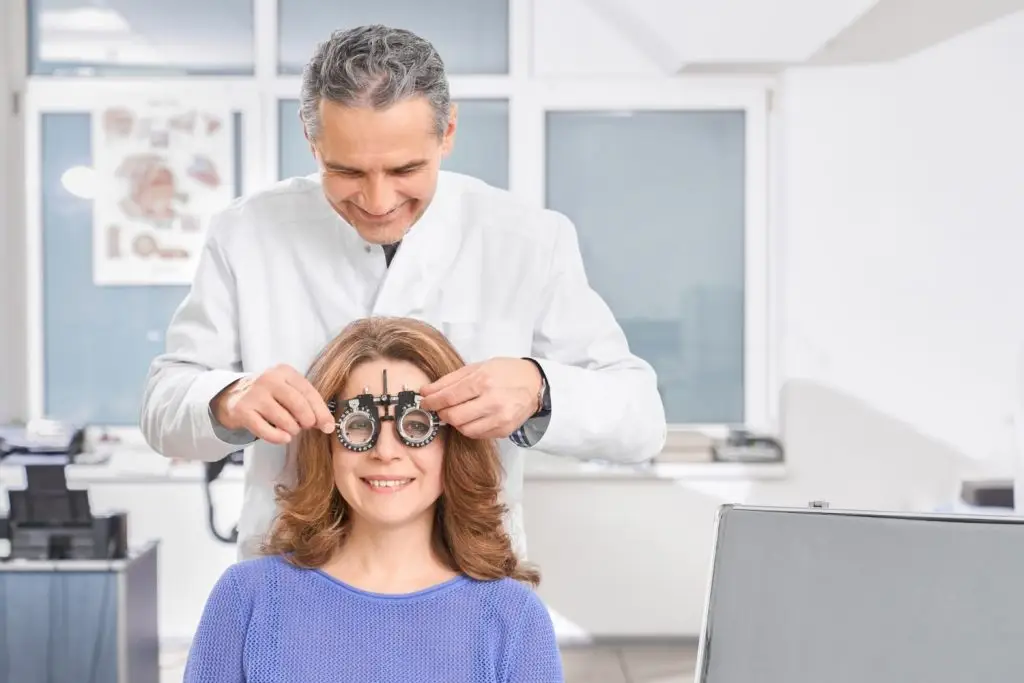
After an urgent visit to an ophthalmologist, understanding the treatment plan and the importance of follow-up care are essential to the recovery and maintenance of your eye health. Here's what you should know:
Immediate treatment: Based on the diagnosis, immediate treatment can be given to relieve symptoms, prevent further damage or start the recovery process. This can range from prescription eye drops for infection to emergency surgery to more serious conditions like retinal detachment.
Follow-up appointments: Your eye doctor will likely schedule follow-up appointments to monitor your recovery and adjust treatment as needed. These meetings are essential to ensure an improvement in the condition of the eyes and to prevent possible complications.
Adherence to medication: If medication is prescribed, it is essential to follow the dosage and schedule exactly. Improper use of medication may delay recovery or worsen your condition.
Lifestyle adjustments: Depending on your condition, you may need to make temporary lifestyle adjustments to help your recovery. This can include taking breaks from screen time, wearing goggles, or avoiding certain activities until your eye heals.
Understanding risks and symptoms: Be aware of symptoms that could indicate a worsening of your condition. Your doctor should provide information about what to watch out for and when to seek further medical care.
Maintaining eye health and preventing emergency situations are key components of general well-being. In Israel there are several strategies and resources available for preventive care and routine maintenance:
Frequent eye exams: Scheduling regular eye exams is essential for early detection and treatment of eye conditions before they become serious. Most health insurance funds in Israel cover routine eye exams, so take advantage of this benefit.
Goggles: Wear goggles during activities that may harm your eyes, such as sports, working with tools, or exposure to harmful chemicals or sunlight.
Healthy lifestyle: Maintaining a healthy lifestyle can have a positive effect on the health of your eyes. This includes a balanced diet rich in vitamins and minerals, regular exercise and avoiding smoking.
Know your family history: Some eye diseases are hereditary. Knowing your family's eye health history can help you and your eye doctor understand your risk factors for certain diseases.
Use screen time wisely: With the increasing use of digital devices, taking regular breaks to rest your eyes is more important than ever. Follow the 20-20-20 rule: Every 20 minutes, look at something 20 feet away for at least 20 seconds.
Access to resources: Take advantage of the resources available through the health system in Israel, including educational programs on eye health, preventive examinations and special treatment for conditions such as diabetes that may affect eye health.
By understanding the process of treating and monitoring eye conditions and knowing preventative care, you can be proactive in keeping your eyes healthy and avoid future emergencies.
Dealing with an eye emergency requires quick action and an understanding of the health options available. Whether you access treatment through public hospitals or private clinics, knowing how to prepare for your visit and what steps to take can significantly affect the outcome of your treatment. Remember, the key to keeping your eyes healthy lies not only in responding quickly to emergencies but also in regular preventative care and maintaining a healthy lifestyle. By utilizing the resources and services available in Israel's comprehensive health care system, you can ensure the best care for your eyes. Let this guide be your starting point towards a more informed and proactive approach to eye health.
Q: How do I know if my eye problem is an emergency?
A: If you experience symptoms such as sudden vision loss, severe pain, eye trauma or signs of infection (redness, discharge), seek immediate medical attention. These conditions can lead to more serious complications if not treated immediately.
Q: Can I go directly to a private clinic for an eye emergency?
A: Yes, you can contact a private clinic directly if you prefer faster access to treatment and are willing to cover the cost. Private clinics often offer shorter waiting times and flexible schedules.
Q: Will my health insurance cover emergency eye care at a private clinic?
A: Coverage varies depending on the insurance policy and provider. It is important to check with your insurance company regarding the details of your coverage for emergency eye care in both public and private settings.
Q: What should I bring to an urgent eye care visit?
A: Bring your ID, health insurance card, any relevant medical records or medications, and a list of symptoms or questions you have to the doctor.
Q: How can I prevent eye emergencies?
A: Regular eye exams, wearing safety glasses during hazardous activities, maintaining a healthy lifestyle and being aware of your family's eye health history can help prevent eye emergencies.
Q: Are there specific considerations for eye health for residents of Israel?
A: Residents of Israel should be aware of environmental factors, such as exposure to strong sunlight, that may affect eye health. Wearing sunglasses with UV protection and staying hydrated are simple measures that can protect your eyes.
These answers are intended to answer common concerns and questions regarding urgent eye care and maintaining eye health in Israel. For more detailed information or specific inquiries, it is always recommended to consult a healthcare professional.

טיפות דמעות הן תמיסות רפואיות או קוסמטיות שמטרתן להקל על

ויטמין C הוא אחד הוויטמינים החיוניים ביותר לבריאות העיניים, הודות
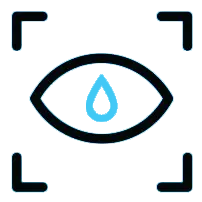
מרכז מומחים לאבחון וטיפול מתקדם בתסמונת העין היבשה ומחלות פני שטח העין
